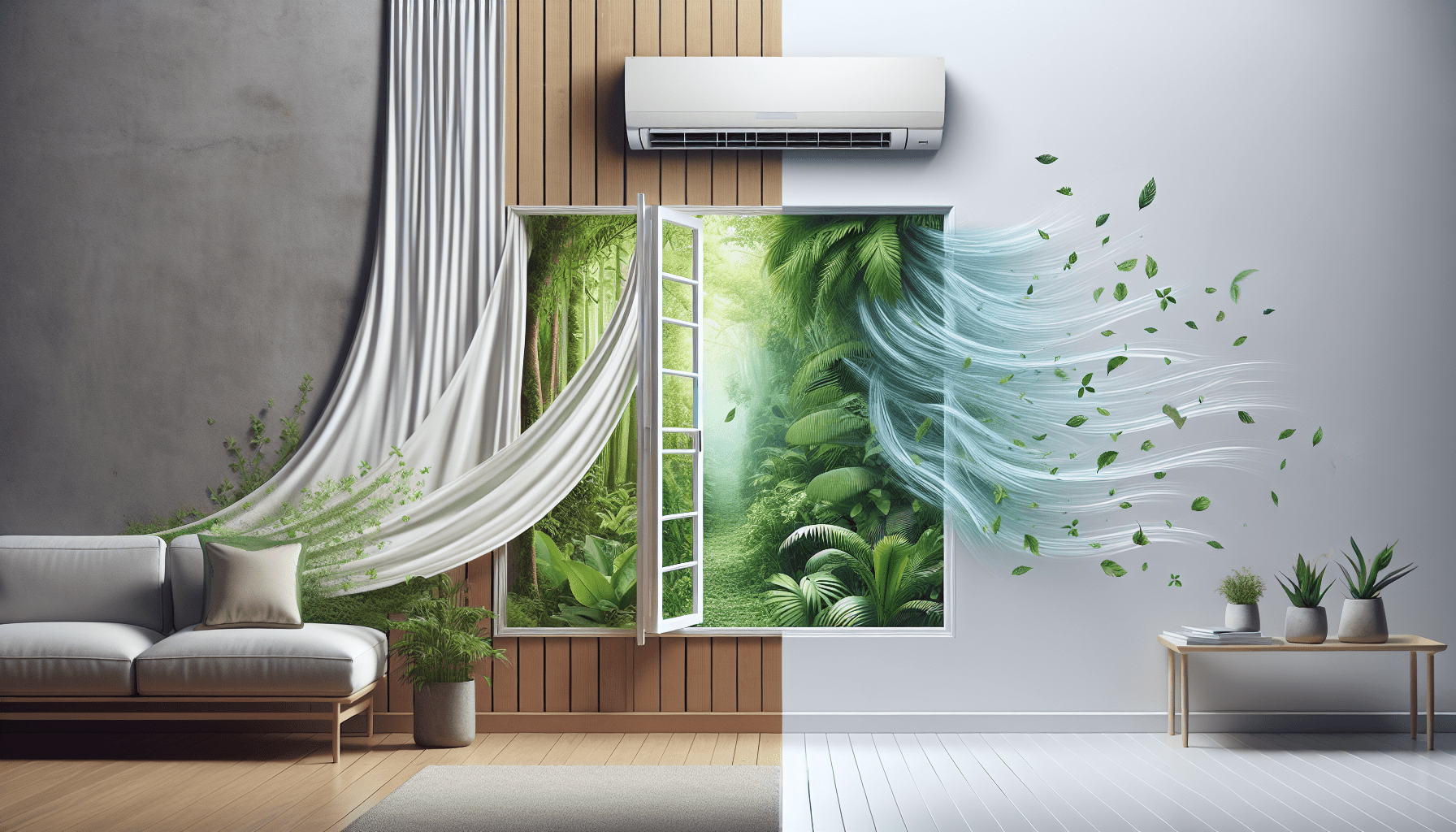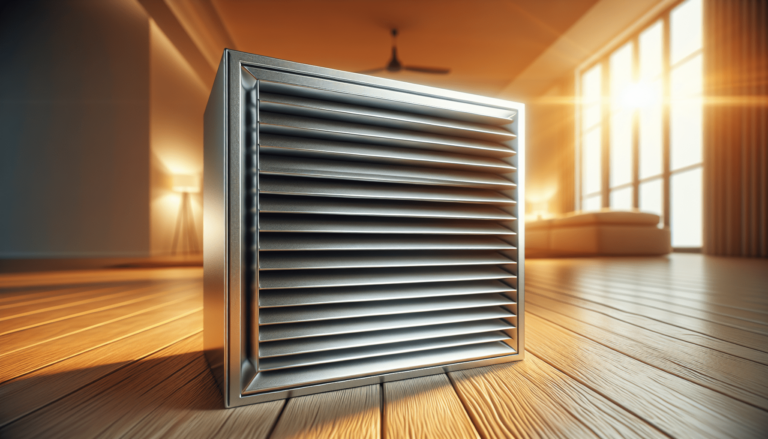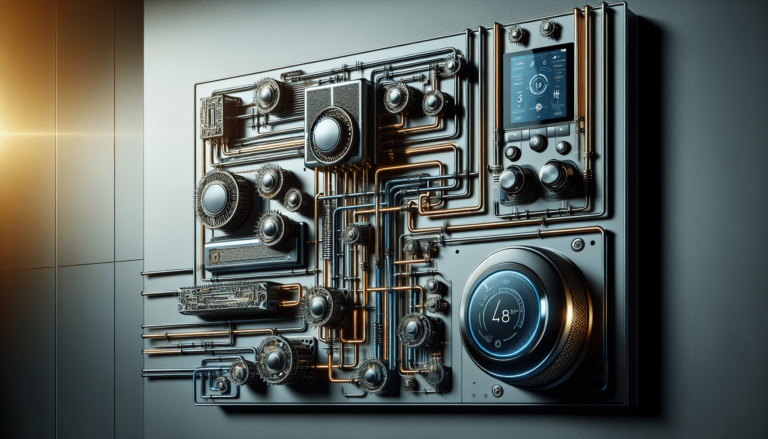

HVAC Services
Get Professional Repairs From The Area's Trusted HVAC Technicians. Ask About Our Services! We Offer Professional Heating & Cooling System Repairs And Guarantee Long-Lasting Results.
Got Question? Call us: (850) 678-2665Financing
Natural Ventilation Vs. HVAC Cooling: Pros And Cons
Explore the pros and cons of natural ventilation vs. HVAC cooling. Discover how each affects comfort, costs, and the environment in this lively, insightful guide.

Have you ever wondered why some people swear by open windows, while others can’t live without air conditioning? Natural ventilation versus HVAC cooling is a hot topic when considering ways to keep your home comfortable. Each method boasts its own benefits and drawbacks, and the choice can significantly influence your comfort and energy bills. Here’s a friendly breakdown of the pros and cons of each to help you decide which might work best for your needs.
What Is Natural Ventilation?
Natural ventilation relies on the movement of air through windows, doors, and other openings to bring fresh air indoors and expel stale air. It’s the age-old solution to controlling indoor temperature and quality. The concept might sound simple, but there’s more to it than just opening a window.
How It Works
Air moves due to pressure differences created by wind and temperature variations. When you open windows on different sides of your house, air naturally flows in and out, creating a gentle breeze. This method not only cools your space but also helps eliminate indoor pollutants by bringing in fresh air.
Pros of Natural Ventilation
Natural ventilation comes with several appealing advantages. It’s energy-efficient since it doesn’t require electricity. You save on utility bills, and it’s kinder to the environment. Without the mechanical sounds of an HVAC system, your home stays peaceful, and you enjoy the gentle symphony of nature. Plus, natural light often accompanies this setup, brightening your home while keeping it cool.
Cons of Natural Ventilation
However, natural ventilation isn’t always reliable. It’s dependent on weather conditions. On hot, still days, your indoor environment might become uncomfortable. Moreover, if you live in a polluted or noisy area, opening windows might bring in unwanted noise or allergens. Additionally, there are security concerns with leaving windows open, particularly at night or when you’re away.
Understanding HVAC Cooling
HVAC stands for Heating, Ventilation, and Air Conditioning. This system is a more modern approach to controlling indoor climates. It uses mechanical systems to heat, cool, or ventilate spaces efficiently.
How HVAC Systems Work
HVAC systems work by drawing in outside air, heating or cooling it, and circulating it throughout your home. Thermostats control temperature and humidity levels, ensuring comfort regardless of outdoor conditions. These systems can include central air units, ductless mini-splits, and window units.
Pros of HVAC Cooling
One of the biggest advantages of HVAC systems is their reliability. They effectively maintain a chosen temperature and humidity, ensuring year-round comfort. HVAC systems also filter air, which can reduce allergens and improve indoor air quality. With programmable thermostats, you have precise control over your environment, potentially saving energy if used wisely.
Cons of HVAC Cooling
There are drawbacks, though. HVAC systems can be costly to install and repair. They require regular maintenance to function effectively, adding to ongoing expenses. Moreover, HVAC systems consume significant energy, potentially driving up your utility bills and impacting environmental sustainability. The noise from some units can also be a downside.

Comparing Natural Ventilation and HVAC Cooling
When comparing these systems, it’s important to consider your climate, lifestyle, and budget.
Climate Considerations
Natural ventilation works best in temperate and windy climates where the outside temperature is moderate. In contrast, HVAC can provide comfortable conditions regardless of outdoor extremes. If you live in a place with unpredictable weather or extreme temperatures, HVAC could be the more reliable choice.
Lifestyle and Comfort Preferences
Your personal comfort preference plays a big role. If you value energy savings and enjoy fresh air, natural ventilation might be suitable. However, if you prefer precise control over your indoor environment, HVAC is the way to go.
Cost and Maintenance
Upfront and ongoing costs are significant factors. Natural ventilation costs are minimal once your home is prepared with optimal window placements and perhaps ceiling fans. HVAC systems, however, have higher initial and maintenance costs but provide consistent year-round comfort.
| Factor | Natural Ventilation | HVAC Cooling |
|---|---|---|
| Comfort | Weather-dependent, can be harder in extreme temperatures | Consistent, reliable regardless of outside weather |
| Energy Efficiency | High, no energy costs | Variable, can be high if used extensively |
| Initial Cost | Low | High |
| Maintenance | Minimal | Regular maintenance required |
| Air Quality | Can improve with fresh air but can bring pollutants | Filters improve air quality, but could recirculate air |
| Noise | Quiet, with nature’s sounds | Mechanical noises possible |
Sustainability and Environmental Impact
Sustainability is a growing concern, influencing choices between natural ventilation and HVAC.
Environmental Pros and Cons
Natural ventilation is eco-friendly, relying on nature rather than electricity, reducing carbon footprints. HVAC systems, on the other hand, contribute to energy consumption and emissions. However, newer, energy-efficient HVAC models are minimizing this impact with advanced technologies.
Making a Sustainable Choice
If reducing environmental impact is your priority, look into optimizing natural ventilation while using HVAC systems sparingly or considering green models. Regular maintenance can also help improve efficiency and decrease emissions.

Safety and Health Considerations
Safety and health should not be overlooked in your decision.
Health Benefits
Natural ventilation aids in reducing indoor air pollutants, which is vital for those with respiratory issues. HVAC systems, however, improve air quality through filtration, crucial during allergy seasons.
Safety Concerns
Leaving windows open for natural ventilation can pose security risks, while HVAC systems require regular checks to avoid issues like mold growth in ducts.
Conclusion: Finding Your Balance
Ultimately, the choice between natural ventilation and HVAC cooling comes down to personal preference. Consider your local climate, lifestyle, budget, and environmental concerns. Perhaps a hybrid approach, using natural ventilation when conditions allow and HVAC during extreme weather, could provide the best of both worlds. Remember, choosing the right system impacts your comfort, finances, and environmental footprint. Whatever option you choose, balance is key to achieving optimal indoor comfort and sustainability.
For expert advice and professional services on maintaining your HVAC systems or optimizing your home’s ventilation, you can reach out to Tempacure Heating and Air Conditioning at:
Tempacure Heating and Air Conditioning
325 Cedar Ave S, Suite B
Niceville, FL 32578
(850) 678-2665
https://tempacurehvac.com/







